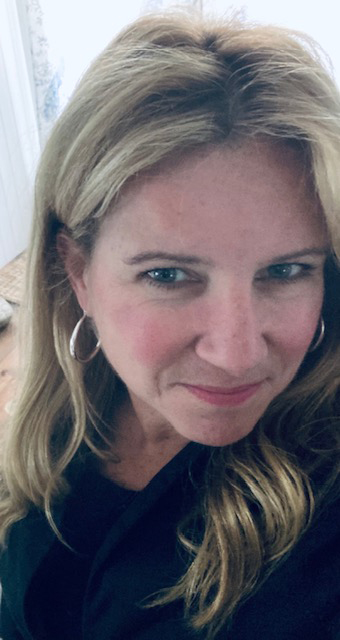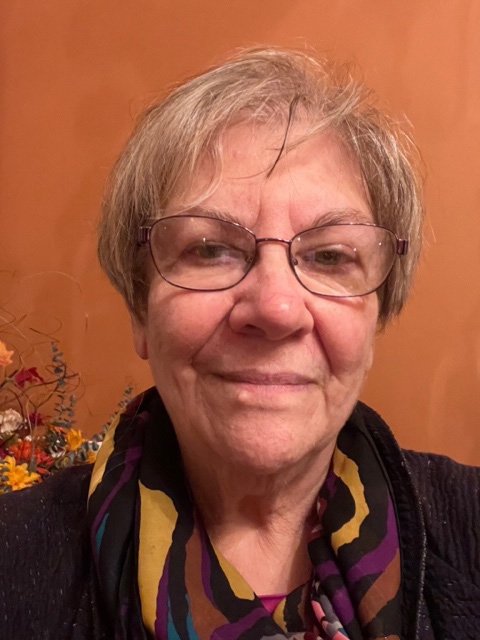WOW: Congratulations on When Love Wags a Tail! I love your collection of essays, and I'm so excited to see another published following I Chose You. Why did you feel led to publish another collection?
Carmen: The Wag Away Tales series was always supposed to be more than one book. From a business perspective it’s much harder to sell a standalone title. It’s so much work starting a business, setting up websites, and doing social media, that multiple books helps make all the work worthwhile. Sales from book one drive books two and three and the other way around. My goal is to donate as much money as possible to rescue groups to help rescue more dogs. More books hopefully means more sales.
The other reason I wanted write this book is that there are so many great stories! I had many submissions for I Chose You and I had to stick them in a file and tell the dog owners I’d hopefully be able to write book two. I am happy to say I was able to use many of those submissions in this book.
WOW: I completely agree! There are so many good stories to tell about owners and their much-loved pets. How did you approach compiling this collection this time around?
Carmen: I contacted people from the last book and asked them first. When Love Wags a Tail is focused on people fifty-five and older, so many of my first authors didn’t fit into that age group. I posted a call on my Facebook rescue dog page and on my personal page. I had writer’s groups post about in their newsletters and I had a postcard at book signings and got stories from local dog owners which has been fun.
WOW: What a clever way to find contributors! What has changed for you since the publication of your last book?
Carmen: The best change for me is that I have been able to donate money to several rescue groups. Donations from I Chose You are just about at $5,000 which is so gratifying. I have done a ton of podcasts and book signings.
WOW: How incredible! And I love that you started your own publishing company. Why did you decide to do that?
Carmen: I have always looked at my writing as a business, so an LLC was always the goal. Since I started this venture by writing dog books, it made sense to go with a doggy themed logo and name. I plan on applying for some grants and loans that are only available to business owners. I wasn’t ready for that in 2022 when I started the company, but I decided to start out with a business. There are also a ton of business deductions to help pay less federal state income taxes and that’s always a good thing.
WOW: Those are some good benefits. What do you hope people gain by reading your story collection?
Carmen: I want people to understand that most rescue dogs aren’t in a shelter because of bad behavior. The overwhelming majority of dogs are simply good dogs in a bad situation. I also want people to know that dogs are awesome and can change our lives in the best way. The caveat to this is that being a responsible dog owner is not without costs, so everyone needs to remember that before adopting.
Lastly, I want people to understand that they need to adopt the right dog at the right time. Every author in this book is a senior or close to it. Maybe an eighty-pound shepherd might have worked when I was forty or even fifty, but at seventy a small dog is more manageable and safer for me. Living in a senior living community might mean having to get a dog under twenty-five pounds. Do you have neighbors who will be upset about dogs who bark a lot? When Love Wags a Tail is filled with stories that will hopefully teach these and other lessons to my readers.
WOW: Those are great things for people to know! Are you working on another? Can people submit?
Carmen: I’m not accepting submissions yet. The last two books in the series are already set in my brain. One will use the same format as these two, but all the stories will be about getting a dog when you have young children at home. Just as seniors have challenges when it comes to welcoming dogs into their lives, so do young families. I think this will be a fun book to write.
The last book will be a doggy devotional and I’m really excited to get back into faith-based writing. I’m applying for a loan to help with the cost of doing an illustrated, four-color, hard cover book so the timing will depend on if I get that loan for publishing costs. It’s a big investment to do a four-color. Once I decide which book comes first I’ll post it on my website and other places.
WOW: That sounds amazing! I can't wait! Can you tell me about the non-profit you are working with that will receive some of the proceeds?
Carmen: Second Chance Shelter is based in Boaz, Alabama. They rescue strays and also take in dogs when families can no longer care for them for many reasons. When Love Wags a Tail has a story with more details about how they started their shelter. In 2018 a group here in Wisconsin learned about them and the need to transport dogs outside of Alabama so that could find forever homes. That’s when Second Chance North was born.
The shelter in Alabama is a 501c3 and can accept tax deductible donations. The adoption fee for a dog who is spayed or neutered and fully vaccinated is only $60.00 because of the overwhelming number of strays and the poverty level. That means that they lose money on every adopted dog and struggle to pay the costs of having a brick-and-mortar business with employees.
One of the cool thing about this partnership is that Second Chance North in Wisconsin has an adoption fee of $375.00 which is still on the low side up here. 100% of the adoption fee goes back down to Alabama which allows them to rescue more dogs.
WOW: I love what you are doing for these pet shelters. Why is having a dog such a beneficial addition to someone's life?
Carmen: There are so many benefits to sharing your life with a dog. When Love Wags a Tail is full of stories from seniors and how their lives are better because of the companionship of their dog, but people of all ages will benefit from having a dog.
Most people feel that dogs are like family members. Our four-legged family members provide unconditional love and easy companionship. If you’re like me, you probably feel like your dog resonates with you emotionally. Because of that, we feel less lonely when surrounded by unconditional love.
I adopted my dog after a traumatic brain injury that left me anxious, stressed, depressed, and suicidal. It was getting out of bed each day and finding a reason to keep living. Studies have shown, and I know this to be true based on my blood work, that being a dog mom has significantly lowered my heart and systolic blood pressure and has improved my cardiovascular health. Being forced to get out and walk my dog is a huge part of my improved physical health.
People who interact with their dogs have higher levels of serotonin and dopamine mainly due to the fact that dogs are calming and familiar companions. That leads to reduced stress and anxiety, which in turn leads to better mental health.
Another benefit to owning a dog is that dogs are natural conversation starters which promotes social interaction. The more social interaction you have, the more likely you are to engage in fulfilling relationships with people that make you happy.
WOW: Great points! Why is rescuing a better option?
Carmen: Whether you adopt a puppy or an older animal, you get just as much love (if not more) than if you purchased a dog from a breeder or a puppy mill. An adopted dog is every bit as loving, intelligent, and loyal as a purchased pet. By adopting a rescue dog, you are giving it a second chance, a home, and a family. That means that not only will you save a life, you’ll also open up shelter space for another animal that might desperately need it.
Plus, most dogs that wind up in a shelter or rescue situation are there through no fault of their own. Problems such as divorce, illness, death, loss of jobs, or a change in a living situation are a few of the reasons why a dog needs a new home. In addition, the costs of spay/neuter surgery, up-to-date vaccinations, recent veterinarian care, and microchipping are often included in the adoption fee.
Among countless others reasons!
WOW: So many good reasons to adopt a rescue dog! Can you tell me about your writing routines?
Carmen: When I published my first book in the Wag Away Tales series, I started a Facebook group for owners of rescue dogs. I am usually at the computer at 6:30 each morning writing content for that page. If I am working on a book I try and write 2,000 words a day. Before writing those words, I edit what I did the day before to get me ready to wrote the next section.
Once I submit the manuscript to the editor, I do lots of marketing tasks, It might be creating memes, writing informational articles for my doggy group, and the writing that goes with marketing. I try and do five marketing tasks every day, but usually end up doing more.
When the book comes back from the editor I shift into a new mode. I print off the manuscript and leave the house to mark it up with corrections and the next day I make put those changes into the computer version. I am a pretty disciplined writer and I love deadlines.
WOW: I love your routine. How has marketing your book been this time around? Have you done any new approaches?
Carmen: I have one huge event I created and Wag Away Publishing will be the lead sponsor. It doesn’t have a name yet, but we are doing a fundraising event for the therapy dog at our local homeless shelter. I am so excited to be able to create awareness about rescue dogs while helping those who are homeless for any number of reasons. I’ve gotten a location, food, and sponsors and now we start pulling together gift baskets and raffle items and we’re doing a mommy/doggy fashion show and dog-themed businesses to do a pop-up shop. All the proceeds will be going to the homeless shelter. The sponsors are really high-profile companies so we should get some great PR which I think will sell books.
Because of the garden themes I am speaking at garden club meeting which is new for me.I am working on a music video! It will be on YouTube and TikTok and other places and the final screen will lead people to information on the books. It’s scary and exciting.
WOW: I love how you engage in your community and onlnine! What else are you working on that you can tell us about?
Carmen: I have books that I have regained the rights to and so I am looking at getting them back into print. I have been asked to teach a course at Fox Valley Technical College on getting your book published so I am working on my course outline now. They are also partnering with me to write a book about the immigrant entrepreneurial experience. And I still have two more books to write in the Wag Away Tales series. I’m keeping busy and that’s a good thing.
WOW: I can't wait to see what you come out with next! Best of luck on your blog tour!


















.jpg)





